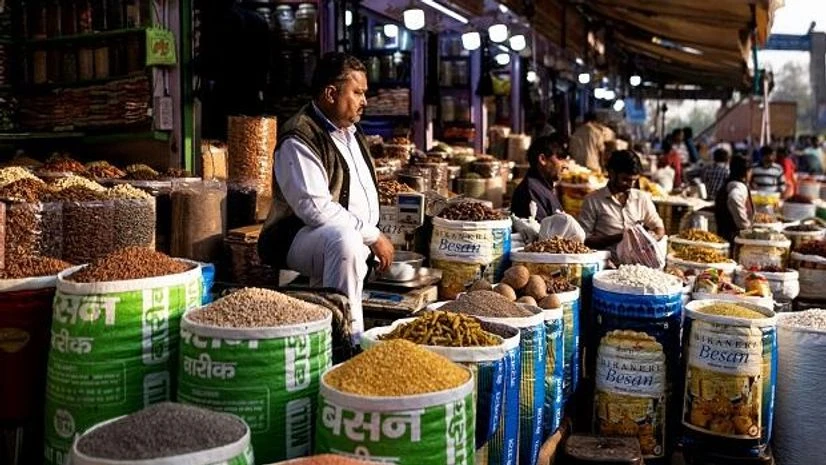By Madhumita Gokhale
BENGALURU (Reuters) - India's consumer inflation likely eased in March to 5.80% thanks to softer food price rises, dipping below the Reserve Bank of India's upper tolerance limit for the first time this year, a Reuters poll of economists found.
The data is due at 1200 GMT on April 12, less than a week after the RBI surprised markets and analysts by holding its key interest rate steady at 6.50% when most expected a 25 basis point rise.
Food inflation, which accounts for nearly half of the overall consumer price basket, is expected to have moderated due to falling vegetable prices, offset in part by surging cereal prices.
Inflation as measured by the annual change in the consumer price index (CPI) was forecast to have fallen to 5.80% in March from 6.44% in February, according to the median view from the April 3-6 Reuters poll of 39 economists.
Also Read
If realised, this would be the only month this year so far inflation is reported below the 6.00% RBI upper tolerance limit.
Forecasts ranged from 5.40% to 6.40%, with a quarter of survey respondents predicting inflation above 6.00%. It was 6.52% in January and spent most of last year above 6.00%.
Sujit Kumar, economist at Union Bank of India, said vegetables and fuel likely pulled inflation down, as well as the fact the base from a year ago was particularly strong.
But with oil prices having surged more than 20% from their recent lows, fuel is likely to push inflation back up again.
"We think the RBI's stance is somewhat risky, with inflation having proven far stickier than the Bank should be comfortable with," noted Mitul Kotecha, head of emerging markets strategy at TD Securities.
Inflation was expected to average 5.2% in the current fiscal year, well above the medium-term target of 4.0%, according to a separate Reuters poll.
(Reporting by Madhumita Gokhale; Polling by Anant Chandak, Devayani Sathyan and Veronica Khongwir; Editing by Hari Kishan, Ross Finley)
(Only the headline and picture of this report may have been reworked by the Business Standard staff; the rest of the content is auto-generated from a syndicated feed.)

)
